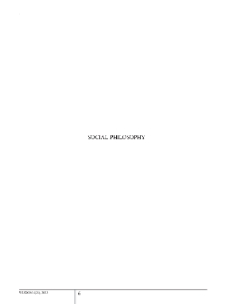Object
Title: The Philosophical and Legal Aspect of the Unified Information and Digital Area in the Eurasian Economic Union: The Fifth Freedom of the Single Market
Journal or Publication Title:
Date of publication:
Volume:
Number:
ISSN:
Corporate Creators:
Խ․ Աբովյանի անվան հայկական պետական մանկավարժական համալսարան
Coverage:
Abstract:
The article deals with the philosophical and legal foundations of the formation of single information and digital area as one of the contemporary objectives in the Eurasian Economic Union. It is pointed out, that the concept of information society spreads over the integration processes and makes to go beyond traditional approaches to the common market and its four freedoms of movement of goods, services, capital, labor. Freedom of information is the fifth freedom of the common market, and digital agenda is included currently in strategies of many integration associations. However, economic issues are not the only that should be referred to, while implementing the latter. The following elements should shape any information and digital strategy of an integration such as security and data protection, trade and competitiveness, management transparency and accessibility, dispute resolution. To regulate the processes of implementing the digital agenda in the EAEU by 2025, member states have chosen the method of coordination. It is justified to harmonize national policies for the digitalization of the economy and governance, while it is necessary to ensure the digital sovereignty of EAEU states as well as to create a market for their own digital solutions in the region․
Place of publishing:
Երևան
Publisher:
Format:
Identifier:
oai:arar.sci.am:372478
Language:
Object collections:
Last modified:
Oct 8, 2025
In our library since:
Apr 4, 2024
Number of object content hits:
100
All available object's versions:
https://arar.sci.am/publication/402350
Show description in RDF format:
Show description in OAI-PMH format:
-
Իմաստություն=Wisdom=Мудрость
-
Իմաստություն, 2013, N 1
-
Իմաստություն, 2014, N 1 (2)
-
Իմաստություն, 2014, N 2 (3)
-
Իմաստություն, 2015, N 1 (4)
-
Wisdom, 2015, N 2 (5)
-
Wisdom, 2016, N 1 (6)
-
Wisdom, 2016, N 2 (7)
-
Wisdom, 2017, N 1 (8)
-
Wisdom, 2017, N 2 (9)
-
Wisdom, 2018, N 1 (10)
-
Wisdom, 2018, N 2 (11)
-
Wisdom, 2019, N 1 (12)
-
Wisdom, 2019, N 2 (13)
-
Wisdom, 2020, N 1 (14)
-
Wisdom, 2020, N 2 (15)
-
Wisdom, 2020, N 3 (16)
-
Wisdom, 2021, N 1 (17)
-
Wisdom, 2021, N 1 (1) Special issue
-
Wisdom, 2021, N 2 (18)
-
Wisdom, 2021, N 3 (19)
-
Wisdom, 2021, N 4 (20)
-
Wisdom, 2022, N 1 (21)
-
Wisdom, 2022, N 1 (2) Special issue
-
Wisdom, 2022, N 2 (22)
-
Wisdom, 2022, N 2 (3) Special issue
-
Wisdom, 2022, N 3 (23)
-
Wisdom, 2022, N 3 (4) Special issue
-
Wisdom, 2022, N 4 (24)
-
Wisdom, 2023, N 1 (25)
-
Wisdom, 2023, N 2 (26)
-
Wisdom, 2023, N 3 (27)
-
Wisdom, 2023, N 4 (28)
- Editorial board
- Contents
- Editor`s Foreword
- The Philosophical and Legal Aspect of the Unified Information and Digital Area in the Eurasian Economic Union: The Fifth Freedom of the Single Market
- The Loss of Individuality in War: Existentialist Approach
- The Potential of Diaspora System-Building Investments in Homeland
- The Philosophical Interpretation of Risk Assessment in Municipal Project Management
- The Legal Education Culture of Young People: A Projection of the Future
- Retrospective Review of Higher Education Quality: Some Parallels Between Past and Present
- Floral Symbolism in Ukrainian Temple Art
- The Philosophy of the Concept “Privacy” in English and Chinese Linguoculture
- Philosophical and Theoretical Aspects of Court-Notary Interaction: Current Relationships in the Provision of Evidence
- Digital Arbitration Is a New Way of Dispute Resolution for the Unified Digital Space of the EAEU: Political, Philosophical and Legal Aspect
- Spatial Planning and Philosophy of Justice: Corrective Action on Commutative Justice Theory (A Study in Kalimantan, Indonesia)
- Methodology for the Study of the Principles of Establishing Territorial Jurisdiction and Mechanisms for Resolving Digital Disputes by the Courts of the International Financial Center of Dubai
- Three Philosophical Pillars of the 2022 Armenian Constitutional Revision: Empowerment of Public Discourse, Theory of Justice, and Environmental Ethics
- International Experience of Constitutionalization of Criminal Law Regulations Regarding the Creation of Elected Public Bodies
- The Philosophical and Legal Rationale for a Systematic Analysis of Digital Dispute Resolution Models in Modern Arbitration
- Shareholders’ Agreement in the Crossroads of Philosophy of Law
- Political and Philosophical Analysis of the Interpenetration of Public-Law And Private-Law Spheres of Regulation in the Activities of the Eurasian Economic Union
- Philosophical Foundations of the Transformation of the Judicial Method of Rights Protection in the Context of the Creation of a Unified Information Space of the EEU
- Complex Regional Unification of Private International Law Rules on the Base of a Three-Part Structure: Political and Legal Framework
- Integration Political and Legal Analysis of Dispute Resolution and Prospects for Digitalization of Justice in the Eurasian Economic Union
- The Political Impact of Digitalization on the Judicial Method of Protection of Rights in the EAEU Countries
- Review of the Monograph: Kolosov I. V. the History of Legal Consequentialism: The Effectiveness of Law
- To the 70th Anniversary of Kadzhik M. Oganyan
- Notes to Contributors
-
Wisdom, 2024, N 1 (29)
-
Wisdom, 2024, N 2 (30)
-
Wisdom, 2025, N 1 (31)
-
Wisdom, 2025, N 2 (32)
-
Իմաստություն, 2013, N 1





